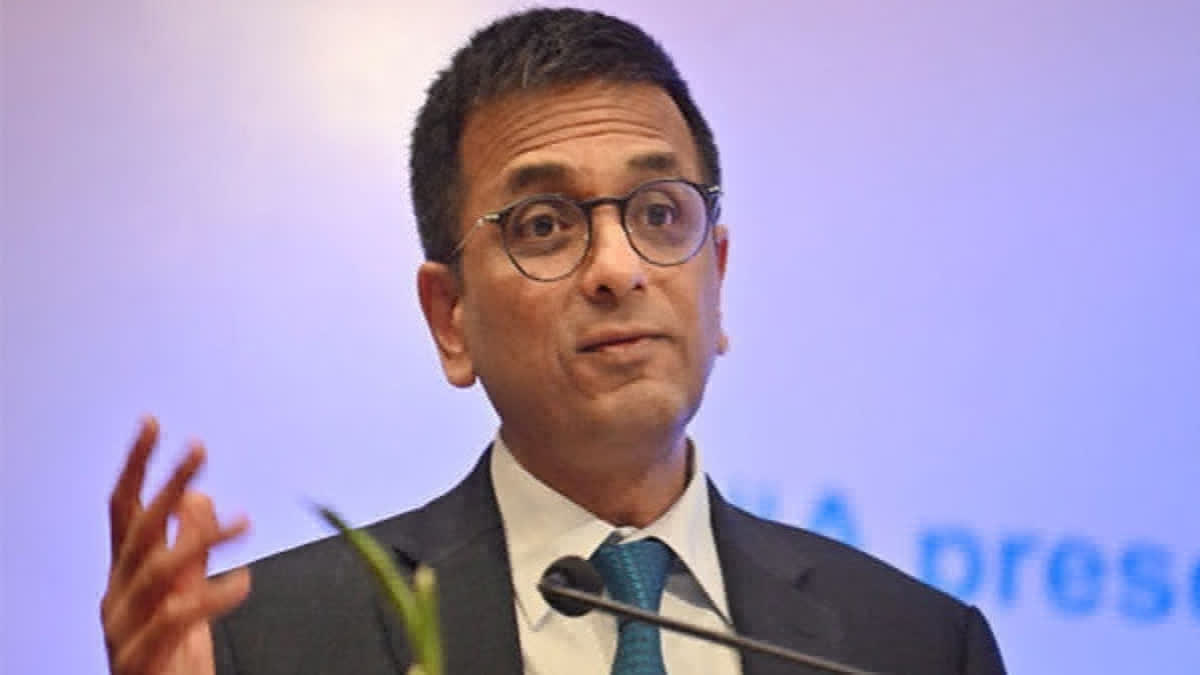New Delhi:Chief Justice of India DY Chandrachud on Friday said with the advent of troll armies and organised disinformation campaigns across different social media platforms, the fear is that there is an overwhelming barrage of speech that distorts the truth, and he believes that “demonstrably false facts are not protected by traditional free speech theories”. The CJI stressed that “In fact, the goal of fake news is to create one, to erode the stability of foundational elements of society—namely, truth”.
The CJI was delivering the 14th Justice VM Tarkunde Memorial lecture on the theme 'Upholding Civil Liberties in the Digital Age: Privacy, Surveillance and Free Speech'. Justice Chandrachud said traditionally, freedom of speech and expression was deemed to be an essential part of civil rights activism because of the fear that the government would prevent certain kinds of speech from entering the marketplace. “With the advent of troll armies and organised disinformation campaigns across different social media platforms, the fear is that there is an overwhelming barrage of speech that distorts the truth”, he said.
The CJI said this ‘epistemological battle’ of sorts was explained eloquently in the New York Times, “the spewing of falsehoods isn’t meant to win any battle of ideas. Its goal is to prevent the actual battle from being fought.” “Therefore, we cannot fall back on traditional notions of free speech and must find new theoretical frameworks to locate free speech on the internet”, he said. The CJI said the unprecedented proliferation of disinformation and hate speech on the internet has offered a serious challenge to the traditional ways of understanding free speech in a democracy.
He said all liberal democracies purport to protect the right to ‘free speech and expression’, however, what remains contested is the application of this principle to concrete situations. He said the presence of laws against, inter alia, defamation, incitement to violence and contempt of court indicate that the free-speech protection does not extend to all acts of communication. “In deciding the contours of this protection, therefore, courts and lawmakers are applying a certain theoretical understanding of free speech. Where can disinformation be located in these theories?”, said the CJI.
He said before getting into the nitty-gritty details of how to tackle disinformation, “We must ask ourselves a more fundamental question - is disinformation protected by traditional free speech theories and constitutional jurisprudence under Article 19 of the Indian Constitution? I believe that demonstrably false facts are not protected by traditional free speech theories”.
The CJI said finally, the last aspect of civil liberties in the digital age that I seek to address is upholding the constitutionally protected right of free speech on the internet. “Here, the traditional understanding of civil liberties can be distinguished from digital rights activism in two major ways. Firstly, the unprecedented proliferation of disinformation and hate speech on the internet has offered a serious challenge to the traditional ways of understanding free speech in a democracy. Secondly, in traditional civil rights activism, there was a classic state-activist-corporation relationship, which played out in most struggles”, he said.
